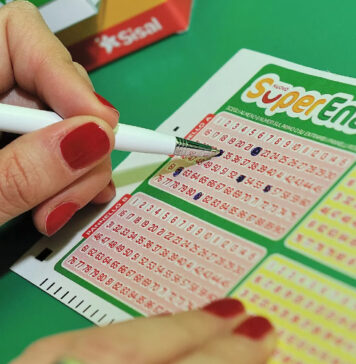The District Court of Noord-Holland has ruled that it has jurisdiction to hear a player's complaint against Malta-based operator XXX. Although legal disputes must usually be brought in the jurisdiction where the defendant is located, EU law provides an exception for consumer claims. XXX argued, unsuccessfully, that this exception should not apply in this case. XXX appealed this decision. The Dutch court has sided with the Dutch Gambling Authority over the disclosure of the fine imposed on the Malta-based operator. Malta-based operator XXX has failed to convince a Dutch judge that public disclosure of the fine imposed by the Dutch gambling regulator can have a disproportionate impact on its reputation. According to the ruling, the public's interest in disclosing these sanctions prevails over the possible damage suffered by the operator.
The sentence reads: “In essence, [the plaintiff] claims: a declaratory judgment of nullity of the gaming contract concluded between the parties or the annulment of the gaming contract with a sentence against XXX to pay €331.075,00 plus legal interest from the date of payment, and/or; a judgment declaring that XXX has acted unlawfully towards [the plaintiff], or at least has imputedly defaulted on performance towards the [plaintiff], or at least has been guilty of unfair commercial practices and declaring that XXX is required to compensate [l the plaintiff] of the damage suffered due to such conduct, with a sentence to XXX of €331.075,00 or (in the alternative) to XXX to the payment of greater and/or other damages, to be determined by the State, and/ or; a declaratory judgment that the gaming contract was concluded by mistake on the part of [the appellant] and (primarily) annul the gambling contract and order XXX to remedy the consequences by paying EUR 331.075,00 to [the appellant] , or at least (in the alternative) to eliminate the disadvantage suffered by [the latter] on the basis of Article 6:230(2) of the Dutch Civil Code by paying reimbursement for the losses suffered as well as other disadvantages, and; order XXX to pay the costs.
Ultimately, [the appellant] claims that he participated in games of chance offered by XXX, while XXX did not have a license to offer games of chance. The Gambling Law (hereinafter: WOK) prohibits the offering of gambling games, whereby XXX acted in an illegal and punishable manner. The gambling contract is therefore void or voidable pursuant to Article 3:40 of the Dutch Civil Code. Consequently, there are undue payments, so that [the plaintiff] is entitled to recover them. Violation of the WOK constitutes an illegal act. XXX must compensate for the resulting damage. There is also a breach of the duty of care, and therefore an unlawful act. In the alternative, [the appellant] invokes unfair commercial practices, failure to perform the contract and error. XXX then raised the question of jurisdiction.
The controversy in the accident
XXX invokes, for all defenses, the judge's incompetence over [the plaintiff's] claims. To this end, XXX argued, in summary, that the present case has an international character and that, therefore, the question of international jurisdiction must be resolved on the basis of Regulation (EU) No. 1215/2012 (hereinafter: Brussels Ia). Based on the general rule of Article 4 of Brussels Ibis, the judge has no jurisdiction, nor does it have jurisdiction based on the special powers of Brussels. Furthermore, the parties have expressly agreed that the Maltese courts have jurisdiction in the event of a dispute. If the court deems itself competent, XXX requests the filing of an interim appeal. [The plaintiff] argues that the claim in the accident should be dismissed. To this end, [the appellant] argued, in short, that he is a consumer, that XXX carries out its commercial activities in the Netherlands and that the performance of the gaming contract took place in the Netherlands, so that the judge is competent to hear your application on the basis of the Brussels I bis ruling. The parties' complaints will be addressed in more detail below, to the extent they are relevant.
Evaluation in the accident
The applications in the present case are of an international nature, as XXX is based in Valletta, Malta, and [the applicant] lives in the Netherlands. In the present case, the question arises whether the Dutch court has jurisdiction to hear applications. The question of the jurisdiction of the Dutch courts must be resolved on the basis of the Brussels Ibis ruling. According to the main rule in Article 4, point 1, Brussels Ia, the jurisdiction of the court is based on the domicile of the defendant. In this case, it is the Maltese court, because XXX is based in Malta. Jurisdiction is different only if there is a rule of exclusive jurisdiction or a jurisdiction clause which exclusively designates another judge.
Rule on exclusive jurisdiction
[The appellant] considered that he acted as a consumer towards XXX and was therefore entitled to invoke the protection provisions of the Brussels I bis Regulation. The Court ruled as follows.
Section 4 of Chapter II of the Brussels Ia Regulation (Articles 17 to 19) provides for a separate jurisdiction system for consumer contracts. Article 17(1) of the Brussels Ia Treaty provides that this Section applies if three conditions are met, namely that: one of the Contracting Parties is a consumer acting in a context which can be considered to be outside his professional activity; a contract has actually been concluded between that consumer and a person acting in the exercise of his professional activity; and one of the categories referred to in Article 17(1)(a) to (c), Brussels Ia. The above conditions are cumulative, therefore all three must be fulfilled in order to establish jurisdiction under the rules applicable to contracts concluded by consumers (CJEU, 2 April 2020, ECLI:EU:C: 2020:264, paragraph 45 ). Only contracts that a natural person concludes separately and independently of any business or professional activity or purpose for the sole purpose of satisfying his own private consumption needs are subject to the special regime for the protection of consumers as a weaker party referred to in Chapter II, section 4, of the Brussels Ia Regulation (CJEU 2 April 2020, ECLI:EU:C:2020:264, points 47 to 57). In the summons and in the present case, [the plaintiff] took the position that he should be considered a consumer in relation to XXX. To this end, [the appellant] claimed to have placed bets through his account(s) at XXX and to have made deposits from his bank account or credit card. The judge agrees with [the plaintiff] in this position. XXX contested that [the appellant] acted as a consumer, as [the appellant] created an account with a company email address and from the correspondence between [the appellant] and XXX's customer service it can be deduced that he had a commercial motive in his participation in the games. This defense cannot be accepted. Simply using a business email address does not mean it was used as a business address. Furthermore, [the appellant] rightly pointed out that, under Dutch gambling law, a gambling contract can only be concluded with a natural person and not with a company. The fact that XXX also seems to take this for granted is evident from its General Conditions, which contain a provision that excludes participation for natural persons other than adults who are of legal age. This is supported by the fact that a company cannot register when creating an account at XXX casinos. In light of the foregoing, the judge concludes that [the plaintiff] must be considered as a consumer who acted in order to satisfy his private consumption needs. The fact that XXX is a legal person carrying out a commercial or professional activity is not disputed between the parties, so that the second condition of Article 17, point 1 of the Brussels Ibis Act is also satisfied. Finally, the question must be answered whether XXX carries out commercial or professional activities in the Netherlands or whether it in any way directs them to the Netherlands. In this case, [the plaintiff] can, as a consumer, also appeal to the judge of the place where he is domiciled. In order to answer this question, according to the ruling of the Court in the Pammer/Alpenhof case (CJEU 7 December 2010, C-585/08, C-144/09), it is necessary to verify whether, before the possible conclusion of a contract with the consumer, it appears from the websites and the general activity of the professional that the latter intended to carry out transactions with consumers domiciled in one or more Member States, including the one in which that consumer is domiciled, in the sense that he was willing to conclude a contract with these consumers. The following factors, the list of which is not exhaustive, may constitute indications that the professional's activity is directed towards the Member State in which the consumer is domiciled: the international character of the activity, the indications of other Member States towards the place where the professional is established, the use of a language or currency other than those normally used in the Member State where the professional is established and the possibility of language to make and confirm the booking, the indication of a number of telephone with international prefix, the costs incurred for a positioning service to facilitate access to the website of consumers domiciled in other Member States, the use of a top-level domain name other than that of the Member State in where the professional is established, and the reference to an international clientele made up of clients domiciled in different Member States. It is up to the national judge to verify the existence of such evidence. By contrast, the mere accessibility of the trader's or intermediary's website in the Member State where the consumer is domiciled is insufficient. The same applies to the provision of an email address and other contact details or to the use of a language or currency, where such language and/or currency is commonly used in the Member State in which the professional is established. The judge considers, in compliance with the aforementioned ruling, that XXX concentrates its commercial activities in the Netherlands, so that it has jurisdiction to hear the [appellant]'s claim against XXX. [The applicant] stated that XXX achieved a significant turnover on the Dutch market, that XXX's website can be reached from a Dutch IP address, that it is possible to create an account with the details of the Dutch address, that certain data relating to Dutch users had already been entered during the registration process, that deposits and withdrawals could be made to and from Dutch bank accounts and that the Netherlands was correctly mentioned in a list of countries where games offered by XXX could be played . In the judge's opinion, it follows from these [the appellant's] statements that, also in consideration of the international nature of gambling, XXX was willing to conclude agreements with consumers in the Netherlands. In light of what the appellant stated, the fact that XXX's websites do not end with ".nl", are not written in Dutch and that there is no advertising aimed at the Netherlands, does not have sufficient weight for a different opinion . Although XXX relied on choice of court in its general conditions, Article 19 of the Brussels Ia Regulation does not allow a derogation from the rules on jurisdiction discussed above by means of choice of court prior to the origin of the dispute. The conclusion from the foregoing is that the judge has jurisdiction to decide the case.
Interlocutory appeal
If and to the extent that the court considers that it has jurisdiction to hear applications, XXX has requested the lodging of an interim appeal on the basis of Article 337(2) of the Code of Civil Procedure (hereinafter: Rv) for the possibility of proposing an interlocutory appeal against this interlocutory sentence. To this end, XXX argues that it is in the interest of procedural economy to know as quickly as possible and with certainty whether the judge has jurisdiction in cases such as this. The object of the appeal is to derogate from the general rule referred to in Article 337, paragraph 2, of the Code of Civil Procedure, according to which the appeal of an interlocutory sentence is permitted only at the same time as the appeal of the final sentence. From the preparatory work of this provision it can be deduced that the intention was to exercise a high degree of moderation in the acceptance of a cross-appeal and that the decision to do so depends on the question whether in the particular case there are special circumstances which justify a derogation from the main rule of Article 337, paragraph 2, of the Code of Civil Procedure (see Supreme Court 13 July 2012, NJ 2013, 288). In this case, the judge believes that particular circumstances such as those mentioned above occur and that the application should be accepted. This is because it is an objection of (international) incompetence raised by XXX which is rejected by the judge. In fact, the refusal of the requested authorization would mean that the parties would have to have the merits of the dispute assessed by the Dutch judge and that XXX could challenge the decision on the jurisdiction of that judge only after the pronouncement of a final ruling on appeal. This situation is undesirable in the interests of due process and efficiency.
Delay in the procedure
The objections raised by XXX were rejected for the same reasons in an incidental question of jurisdiction in a case previously brought before this Court. [The appellant] claims that XXX is only concerned with delaying proceedings and "litigious bullying". The Court believes that the exception of international incompetence can be raised in a separate cross-question, without losing the right to respond on the merits. However, it is suggested that XXX could also be raised at the same time as a substantive response, which could speed up the progress of the proceedings and avoid unnecessary delays.”












